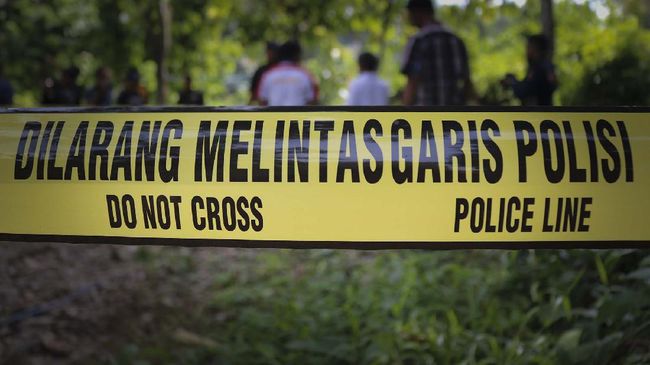On the athletic track of the Nouméa stadium, Pierre Fairbank and Nicolas Brignone are engaged in a fierce fight. The intensity is there, the will to win is there for both of them. Under the amused eye of their trainer, Olivier Deniaud, used to seeing these two champions, qualified for the Tokyo Paralympic Games, “get out of the way” without concession.
Pierre Fairbank is a helping father.
Olivier Deniaud, coach of the Athletics Pole in New Caledonia does not hide relying on the old ones, like Pierre Fairbank, sprinter with eight Paralympic medals (1), and Thierry Cibone, six-time Paralympic medalist in the shot put and javelin, to convey messages to the youngest.
“In New Caledonia, there is a natural respect for the elders. Intergenerational transmission is cultural ”, develops the trainer, landed in Nouméa more than fifteen years ago. Pierre Fairbank, legitimate candidate to be flag bearer, also heads the detection cell of the Caledonian pole where Rose Welepa and other former glories of local para-athletics are supervising the next generation.
Champions arouse envy in all young people
The Paralympic Games and the Pacific Games are essential vectors for perpetuating the tradition. “To strengthen it and transpose it to the world of sport, corrects Olivier Deniaud. We operate a bit like a volcano. When it erupts, it throws lava and there is ash fallout all over the land. When Pierre Fairbank and Thierry Cibone win medals at the Games or at the world championships, it reflects on New Caledonia. Athletes are received in schools, the media. “ They arouse desires, even vocations, in all young people. Those with disabilities and able-bodied alike, especially as the athletic pole brings together both audiences on the island.
READ ALSO. Paralympic Games. Who are the 33 Western athletes in Tokyo?
The relationship between Pierre Fairbank, 50, and Nicolas Brignone, 31, perfectly illustrates this notion of sharing and relaying with the youngest. Today, the two accomplices, competitors on the tracks because they are engaged in the same category of handicap (T 53) and on the same races (100, 400, 800 m and relay), are even more united than the two fingers. from the hand. One day the pupil may beat the master
, launches Olivier Deniaud. But I think it will hurt Nicolas.
–
Pierre Fairbank is passionate about doing the right thing and improving his chair. © Florent Pervillé / FFH
The success of Nicolas Brignone, nailed to an armchair following a motorcycle accident in 2008, is somewhat that of Pierre Fairbank, after-effects of polio since he was 9 years old. Gold medalist over 200m in Sydney, the fiftieth-year-old taught his disciple everything. I had contact with Pierre through my motorcycle club
, says Nicolas Brignone. I was 20 the first time I saw him. He was training in an athletic chair. I found it stylish and impressive. I didn’t think we could go that fast. Olivier, on his bike, seemed to be drooling over it.
The young man, bronze medalist at the 2015 World Championships in the 4x200m relay with Adelaide, Fairbank and Casoli, responded favorably to his elder brother’s invitation. They do their first joint session the next day. History is on the move.
“Pierre has the culture of the perfect gesture”
After a year and a half in handbike, Pierre Fairbank brings back an athletic chair to Nicolas Brignone. I thought then that I was going to give him a peanut
, laughs the student. Pschitt. Mastering the craft takes time and technique, tips and advice. With his elder, Nicolas Brignone found the suitable mentor. Pierre seeks perfection in the armchair
, develops Olivier Deniaud. He is still tinkering with his chair. He also has the culture of the perfect gesture. It animates him.
Right away, Fairbank guided Brignone. “When I started he helped me a lot to position myself in the chair. He advised me to make my own gloves, act on the propulsion, steer, reposition myself when my body has changed. Everything I learned in the chair I got from him. He directed me to all the details (rims, tubulars, correct measures). »
Gradually, the answers provided became avenues for reflection so as never to switch to assistantship. “You have a thought because it’s up to him to find his style, his way of pushing, details Fairbank. But I try to save him from wasting time. “ Certain points are also extremely personal, linked to the feeling in the chair, to the course of the race but also to the morphology of the athletes. “He also gave me a lot in the management of the effort”, continues Brignone.
Mutual contribution
The richness of this relationship, which has become a solid friendship, also lies in the reciprocity of the contribution. Pierre Fairbank puts it bluntly: “I don’t think I would have continued for so long if Nicolas wasn’t here. I’ve been riding for 30 years, so sometimes I only go to training for my coach and him. “
After the London Games without a medal, Pierre Fairbank, still a triple gold medalist at the last Euro, in June 2021, could have given up. But being beaten by Nicolas Brignone, a few weeks later, in training, reboosted him. He questioned himself, knew how to change everything, assures his partner, who now shares feelings and points of view with him. On arrival, he found the podiums in Rio.
In Tokyo, Pierre Fairbank hopes as much to hang new medals, as to see his protégé, empty-handed income from Brazil, climb on one or more podiums.
1: Pierre Fairbank’s eight Paralympic medals. Rio 2016 : silver over 800 m and bronze over 400 m. Beijing 2008: bonze in 4X400. Athens 2004: 4×400 silver and 4×100 bronze. Sydney 2000 : gold over 200, silver over 400 m and bronze over 800 m.
– .


